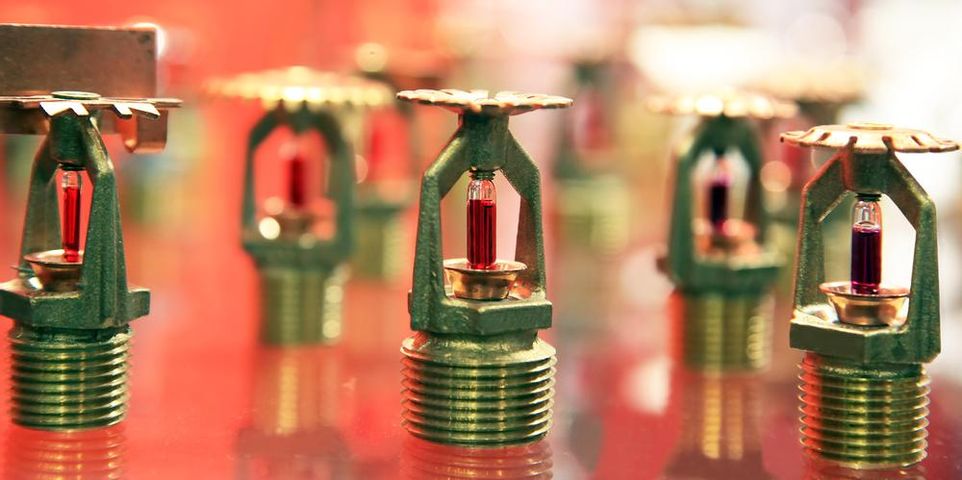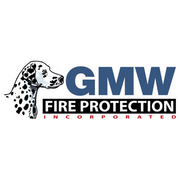Discover the Basics of Your Fire Sprinkler System

Your fire sprinkler system is a vital safety component, reducing chances of harm if flames ever arise. While emergencies are something no business owner wants to think about, sprinkler systems are one of the most valuable commercial fire protection tools available. A whopping 96% of fires were controlled by fire sprinklers where they were operating, protecting both people and property in the midst of disaster. If you’re unsure how your system operates, here’s what you should know.
Wet Systems
The most widely used fire sprinkler system is the “wet” variety. Integrated into your building through piping, it keeps a steady supply of water available for discharge when a fire’s detected. Just like fire alarms and extinguishers, you’ll have multiple sprinkler heads throughout your building, controlling the areas in which they’re installed.
Each individual sprinkler has sensitive components that detect heat, so once the room reaches a high enough temperature, its glass bulb will shatter, instantly activating the sprinklers to spray water directly over the flames. Since sprinklers are stimulated only by heat, they won’t go off by accident, making them incredibly reliable during a disaster.
Another great benefit of your fire sprinkler system? Only the sprinkler heads nearest the flames will activate, so you don’t have to worry about water pouring throughout your building. These systems are reliable enough to extinguish fires quickly, and once heat levels lower, water flow comes to a halt, making flooding impossible.
Dry Systems
 Dry fire sprinkler systems work the same way as wet ones, but they fill your piping with pressurized air or nitrogen instead of water. A dry pipe valve prevents water from entering your piping until temperatures rise, and then the sprinklers spring to work. Once a fire is detected, pressured air escapes the system, the dry pipe valve opens, and water flows through the pipes, into the open sprinklers, and directly onto the flames.
Dry fire sprinkler systems work the same way as wet ones, but they fill your piping with pressurized air or nitrogen instead of water. A dry pipe valve prevents water from entering your piping until temperatures rise, and then the sprinklers spring to work. Once a fire is detected, pressured air escapes the system, the dry pipe valve opens, and water flows through the pipes, into the open sprinklers, and directly onto the flames.
Businesses that consider freezing a concern are the most common users of dry sprinkler systems. Warehouses and loading docks open throughout the winter, for instance, so they consider using dry systems as an extra precaution. If you have a lot of water-sensitive areas surrounding your building, this might make a great option for you as well. Both fire sprinkler systems are equally as effective and fast-acting, so it’s all up to preference.
While emergencies can’t be controlled, preparation can. When you want to safeguard your property, turn to Anchorage, AK’s GMW Fire Protection. These experts keep Alaskans safe from fire, providing high-quality safety equipment and service throughout the state. When you’re seeking industry-leading fire sprinkler systems, fire alarms, and extinguishers, they’ll work with you to design a system that meets your property’s unique needs. From installation to inspection, maintenance, and repair, they won’t just supply the equipment you need; they’ll ensure that it’s always working its best. Visit their website to learn more, or call (907) 336-5000 today.
About the Business
Have a question? Ask the experts!
Send your question

